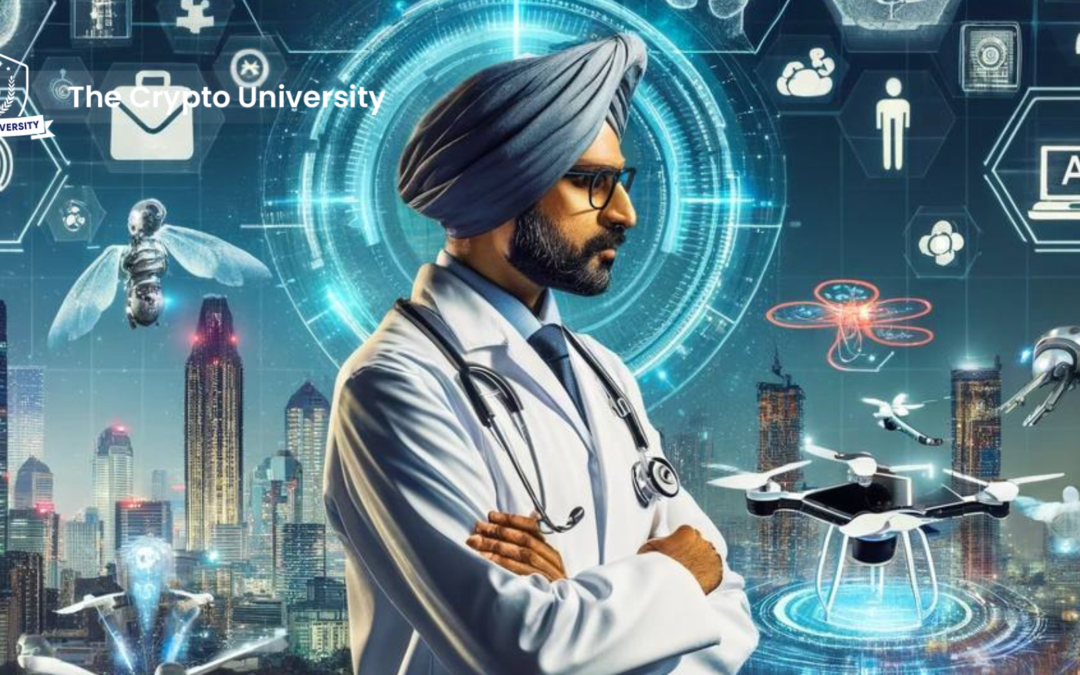Health IT in India is at the forefront of transformative changes, with the integration of AI, robotics, and advanced technology redefining the healthcare landscape. In this comprehensive guide, we delve into the nuances of these trends, exploring their impact on patient care, surgical practices, data management, and the collaborative efforts shaping the future of Indian healthcare.
AI in Indian Healthcare
AI is catalyzing a paradigm shift in Indian healthcare, from predictive diagnostics to personalized treatment plans. Through machine learning algorithms and data analytics, AI optimizes decision-making processes, ensuring a more precise and efficient approach to healthcare delivery.
Robotics Revolutionizing Medical Practices
The integration of robotics is revolutionizing medical practices, with robotic-assisted surgeries offering enhanced precision and reduced invasiveness. Not only is robotics transforming surgical procedures, but it is also assuming a crucial role in patient care through the utilization of robotic caregivers.
Technology Adoption Across the Healthcare Ecosystem
The adoption of technology extends beyond individual aspects, encompassing the entire healthcare ecosystem. Electronic Health Records (EHRs), telemedicine, and wearable health devices are becoming integral components, fostering a connected and data-driven healthcare experience.
Impact on Patient Care
The transformative impact of health IT on patient care is profound. From remote monitoring to personalized treatment plans, technology ensures a more patient-centric approach, improving accessibility and healthcare outcomes.
Overcoming Challenges: Opportunities for Growth
While health IT presents unprecedented opportunities, challenges such as privacy concerns and data security must be addressed. Overcoming these challenges becomes a catalyst for innovation and collaborative growth within the healthcare sector.
Future Outlook
The future of health IT in India is characterized by a convergence of technology, compassion, and accessibility. As AI continues to evolve and robotics become more sophisticated, healthcare in India is poised for a future where innovation meets the human touch.
Integrating AI and Human Touch
Striking a balance between technological advancements and human touch is crucial. Integrating AI into healthcare practices enhances efficiency, but the human element ensures empathy, understanding, and holistic patient care.
The Role of Robotics in Surgery and Patient Care
Robotics is transforming surgical procedures, making them more precise and less invasive. Beyond surgeries, robotic caregivers are becoming instrumental in providing consistent and personalized patient care.
Digital Transformation in Health Records
The digital transformation of health records streamlines data management, ensuring accessibility and accuracy. Electronic Health Records (EHRs) facilitate seamless information exchange between healthcare providers, enhancing overall patient care.
Telemedicine: A Game-Changer in Healthcare Access
Telemedicine bridges geographical gaps, providing remote access to healthcare services. This transformative approach ensures that individuals, regardless of location, can receive timely medical consultations and support.
Wearable Technology and Personalized Health
Wearable health devices empower individuals to actively participate in their health management. From fitness trackers to smartwatches, wearable technology enables personalized health monitoring, promoting proactive healthcare practices.
Cybersecurity in Health IT
As health IT advances, ensuring robust cybersecurity measures becomes paramount. Protecting patient data from cyber threats is essential for maintaining trust and safeguarding the integrity of health systems.
Data Analytics for Informed Decision-Making
Data analytics plays a pivotal role in healthcare decision-making. Analyzing vast datasets allows healthcare professionals to derive meaningful insights, leading to informed decisions and improved patient outcomes.
The Collaborative Landscape of Health IT
Collaboration between technology providers, healthcare institutions, and regulatory bodies drives innovation. Partnerships foster the research, development, and implementation of advanced health IT solutions.
The Regulatory Landscape in India
Navigating the regulatory landscape is essential for the successful implementation of health IT. Understanding and complying with regulations ensures that technological advancements align with legal and ethical standards.
Challenges in the Adoption of Health IT
Despite the numerous advantages, challenges in the adoption of health IT exist. Issues like resistance to change, initial setup costs, and interoperability concerns need to be addressed for successful implementation.
Opportunities for Innovation and Collaboration
Challenges present opportunities for innovation and collaboration. Start-ups, established healthcare providers and technology companies can collaborate to create solutions that address existing challenges and drive innovation in health IT.
Patient Privacy Concerns in the Digital Age
The digital age brings forth concerns about patient privacy. Establishing robust privacy measures and transparent policies is crucial for maintaining patient trust in the digital healthcare landscape.
Conclusion
In conclusion, health IT trends in India in 2024: AI, robotics, and technology adoption in health care herald a new era in Indian healthcare. Embracing these trends ensures a future where technology seamlessly integrates with compassion, accessibility, and personalized care.
FAQs about Health IT Trends in India 2024
How does AI impact personalized healthcare?
AI tailors treatment plans based on individual health data, ensuring a personalized and effective approach to healthcare.
Are there concerns about data security in health IT?
Yes, data security is a significant concern. Robust cybersecurity measures are essential to protect patient information from potential threats.
How is telemedicine changing healthcare accessibility?
Telemedicine provides remote access to healthcare services, overcoming geographical barriers and enhancing accessibility to medical consultations.
What role do wearables play in promoting proactive healthcare?
Wearables enable individuals to monitor their health actively, promoting proactive healthcare practices and early intervention.
How can healthcare providers navigate the regulatory landscape in India?
Healthcare providers can navigate the regulatory landscape by staying informed, collaborating with legal experts, and ensuring compliance with established standards.
Join us at Crypto University today and stay informed on the latest information and up-to-date happenings in the crypto space around the globe.
We serve it hot!!!
